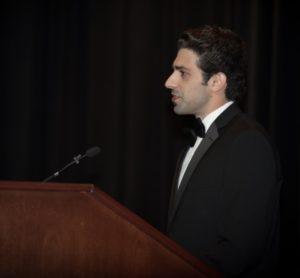 SOLTALK21 is the voice for inspire worldwide community to invent for a brighter future through conferences, workshops and many professional and educational activities.
SOLTALK21 is the voice for inspire worldwide community to invent for a brighter future through conferences, workshops and many professional and educational activities.
SOLTALK21 is a media and live talk organization which offers conferences and workshop with 21 topics, up to 21 minutes each topic.
SOLTALK21 is bringing together people with common interests and discuss issues and ideas relating to a specific topic.
SOLTALK21 can be held on almost any helpful topics, in many sizes, by any number of organizations in many countries.
SOLTALK21 may requires intensive time, planning, and resources.
What is SOLTALK21?
SOL is the Latin name for the SUN.
SOL is a Roman SUN God
SOL is a note of the solfege MUSIC scale
SOL is a MUSICAL KEY
SOL is the first 3 letters of SOLTANI: The creator of SOLTALK 21
TALK is the TALK

21 is a Wining number
21 is the 21st Century
21 is the 21 Speakers
21 is the 21 Topics
21 is up to 21 Minutes for each Speech
Who can organize SOLTALK21 conferences?
- Educational institutions, or departments or groups within them
- Advocacy or community activist groups
- A group with a stake or interest in the subject of the conference
- Government agencies
- Professional associations and organizations
- Individual organizations
- Coalitions
Purpose of the conference:
- Training
- Networking
- Cheerleading (helping participants feel good about what they and the field do)
- Passing on information like new developments, issues to watch, regulations, etc.
- Improving practice
- Advocacy
- Highlighting an issue
- Problem-solving
- Decision-making and planning like setting the direction for an initiative or a field
- Kicking off a new initiative or a new direction
Who can attend SOLTALK21 Conferences?
- Members of or people interested in a certain profession or discipline
- People involved in a specific community or broader issues
- People concerned with a specific population
- People from a specific population
- Public officials at any or all levels
- People from organizations funded by particular sources
- Members of the sponsoring organization
- People from a particular sector of the community
- Residents of a particular community
- The general public
For the agents who would be interested to offer SOLTALK21 Conferences
 Organizing a conference involves several phases:
Organizing a conference involves several phases:
- Planning the conference
- Creating an organizing structure
- Put together a team or committee that will be in charge
- Appoint a coordinator
- Infrastructure of the conference. An infrastructure is the internal structure that supports everything
- Publicizing the conference and recruiting and registering participants
- Evaluating the conference and the conference organizing process
- Identify your target audience
- Set a length and date for the conference
- Plan the format
- Pre-conference registration
- Coordination and troubleshooting
- Publicity and recruitment
- Recruitment of presenters
- Conference registration/check-in
- Care and feeding of speakers and presenters
- Evaluation forms
- Crisis management
- Clean-up and packing of materials and equipment supplied by the organizers
- Clean-up and packing of materials and equipment supplied by the organizers.
- EVALUATIONS
- Individual presentations
- The overall experience
- The site and its services
- Performance of the coordinator, team, conference staff, and volunteers
- The Organizing Process
- Whether there were enough people, both in the initial stages and during the conference, to do everything that needed to be done
- Whether there was enough lead time
- The planning process. Did it include enough input from everyone who should have been included? Did it have a structure that made planning relatively easy? Did it result in a plan that was easy to follow? Did it result in a successful conference?
- Whether the initial estimates – of numbers of participants, costs, etc., were reasonably accurate
- What went particularly well
- What needs to be changed, and how
